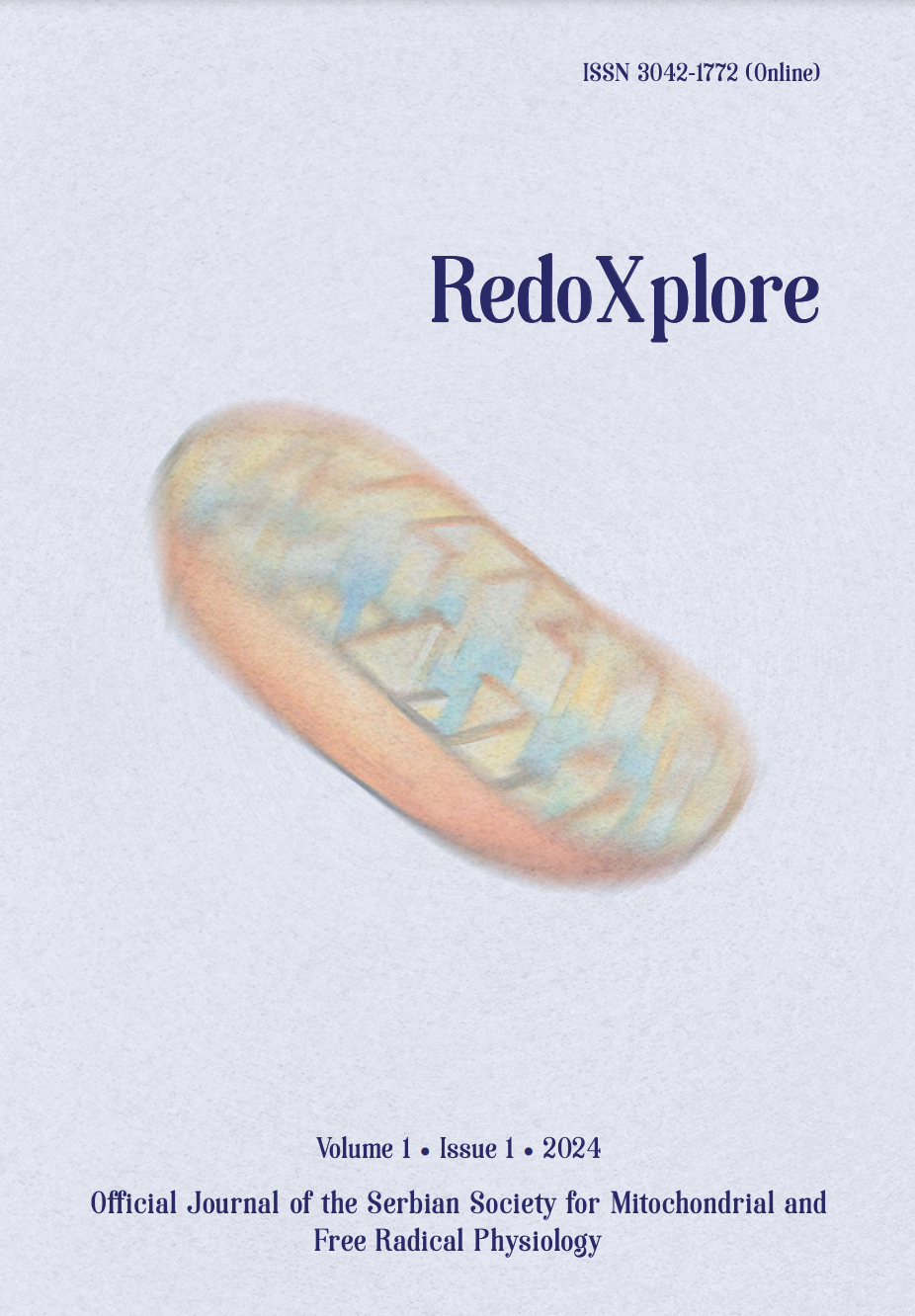Current issue

Volume 1, Issue 1, 2024
Online ISSN: 3042-1772
Volume 1 , Issue 1, (2024)
Published: 29.08.2024.
Open Access
All issues
Contents
29.08.2024.
Professional paper
ANTIOXIDANTS AND FREE RADICALS IN HUMAN HEALTH AND DISEASE
Increased damage by ROS plays a role in the development of neurodegenerative diseases, especially Alzheimer’s Disease and other dementias, and diets rich in antioxidants (high intake of fruits and vegetables) seem neuroprotective (as well as being protective against many other age-related diseases). However, attempts to treat/prevent such diseases by giving high doses of antioxidants such as vitamins E and C and carotenoids have, overall, been unsuccessful. Reasons for this will be discussed. A major focus of our work is a unique diet-derived thiol/thione with antioxidant properties, namely ergothioneine (ET). Low blood levels of ET are a risk factor for the development of neurodegenerative and cardiovascular diseases, frailty, eye disease, pre-eclampsia and age-related diseases generally. We have identified “adequate levels” of plasma ET in humans, levels below which are associated with increased disease occurrence, and the reasons leading to these low levels are under investigation. In animal studies, ET has exhibited the ability to modulate inflammation, scavenge certain ROS, protect against acute respiratory distress syndrome, decrease brain damage in models of Parkinson and Alzheimer diseases and stroke, prevent endothelial dysfunction, protect against ischemia-reperfusion injury, counteract iron dysregulation, hinder lung and liver fibrosis, and mitigate damage to the lungs, kidneys, liver, gastrointestinal tract, and testis. ET may also influence the gut microbiome. There is evidence that ET is specifically accumulated at sites of tissue injury, so we have called it an “adaptive antioxidant” that may not interfere with the normal physiological roles of ROS. But does low ET predispose to age-related diseases or is it a spurious correlation? Extensive cell and animal studies strongly suggest the former. Caveats in the use of ergothioneine supplements to prevent/ameliorate aged-related diseases include its potential to generate trimethylamine-N-oxide by the action of ergothionase enzymes in gut bacteria and its ability to be taken up by many bacteria, a few of which are pathogenic (e.g. H. pylori, M. tuberculosis). These caveats will be discussed.
Barry Halliwell





